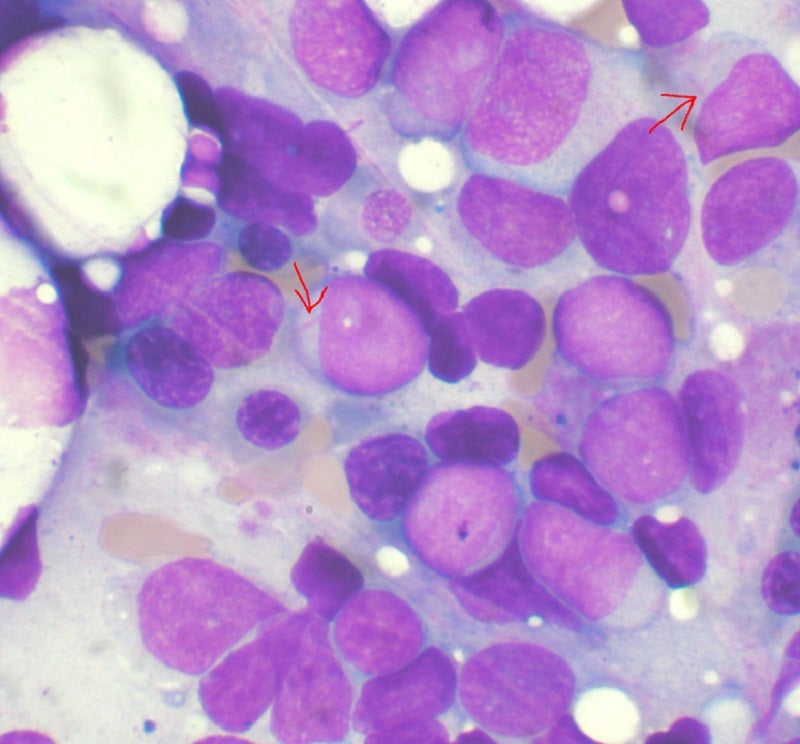
ImmunoGen has reported data from the dose-escalation and expansion cohorts of the Phase Ib/II study of pivekimab sunirine (pivekimab), along with Vidaza (azacitidine) and Venclexta (venetoclax), in acute myeloid leukemia (AML) patients.
The multicentre, open-label study of a combination of pivekimab, azacitidine, and venetoclax was conducted in relapsed/refractory (R/R) and frontline CD123-positive AML patients.

Discover B2B Marketing That Performs
Combine business intelligence and editorial excellence to reach engaged professionals across 36 leading media platforms.
In the study, 91 CD123-positive R/R AML patients were given 15mcg/kg or 4 mcg/kg of pivekimab on day seven, 50 mg/m² or 75 mg/m² of azacitidine on days one to seven, and 400mg of venetoclax daily for eight, 14, or 21 days per 28-day cycle.
A manageable safety profile was observed in R/R AML patients.
Thrombocytopenia, febrile neutropenia, dyspnea, hypokalemia, fatigue, and infusion-related reactions are the most common treatment emergent adverse events observed in the trial.
In the R/R cohort, 45% objective response rates and 25% composite complete remission rates were observed.

US Tariffs are shifting - will you react or anticipate?
Don’t let policy changes catch you off guard. Stay proactive with real-time data and expert analysis.
By GlobalDataImmunoGen senior vice-president and chief medical officer Anna Berkenblit said: “Based upon the strong results from the first ten frontline patients we have enrolled, we have moved forward with gathering more data for the triplet using 14 days of venetoclax and have opened a second cohort of up to 50 frontline patients, with a goal of evaluating up to 28 days of venetoclax per cycle to optimise the duration of therapy.
“Tolerability and efficacy outcomes from these cohorts will guide pivotal development of the triplet in frontline AML.”
The CD123-targeting ADC Pivekimab sunirine is in clinical development for various hematological malignancies.
In June 2020, the European Medicines Agency granted orphan drug designation to pivekimab to treat BPDCN.





